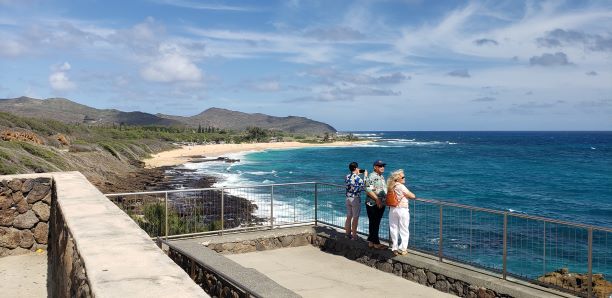
HONOLULU (Eagle News) – While 54% of respondents in Hawaii expect the COVID-19 pandemic to become worse in the next several months, only 44% plan to get a vaccine when it becomes available.
The latest percentages are based on a new report by the University of Hawaii (UH) at Mānoa Public Policy Center, which surveyed 616 respondents statewide.
The report revealed that 37% are still unsure if they will get the vaccine, whereas the number of residents who said they will definitely get the vaccine has declined by 7% since the center’s previous survey last August.
Men were more likely to say that they would definitely get the vaccine (54%) compared to women (34%). Households with incomes over $150,000 (56%) stated that they will get a vaccine while 28% of Hawaii’s poorest households plan to receive one.
“It’s interesting that it’s actually declined since we asked the same question in August and I wasn’t expecting to see that,” said Colin Moore, Public Policy Center director and associate professor. “I suspect some of this has to do with a general sense of uncertainty in their confidence in the government right now.”
Moore added, “This survey went into the field right after the presidential election, and that’s my guess is that the decline in the number of people willing to take the vaccine and a relatively low number to begin with, 44%, lower than I would have expected. I think that really is a response to a lack of trust in the regulatory process right now that it will be safe. I really hope those numbers improve over the next few months.”
According to the university, the survey results are intended to assist policymakers by informing how well they are communicating with the public, addressing the issues residents are most concerned with and perceptions of their overall performance.
“That’s really our goal is to be a link between what average people are worried about and how they think the state is performing and to link that to policymakers to make their voices heard,” Moore explained.
(With reports from EBC Hawaii Bureau, Eagle News Service)
